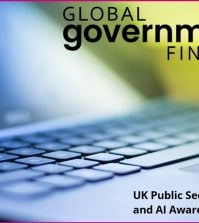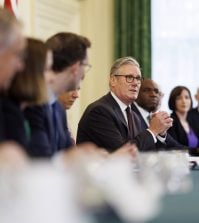Integrity under threat: civil service ethics in the era of populism

Populism left an indelible mark on the 2010s, and its hold in democracies remains strong. During a Global Government Forum webinar, experts discussed how civil servants can maintain legitimacy at a time of rising populism
Ethical standards and the rule of law can be seen by populist presidents and prime ministers as barriers to progress rather than the bedrock of good government, putting civil servants in the unenviable position of having to breach codes of conduct in the name of delivering for elected leaders or choosing to quit public service.
At the same time, with citizens across the political spectrum losing faith in public institutions, officials face accusations of deliberately undermining the will of the people, making them wary of speaking truth to power.
During a Global Government Forum webinar, experts from a range of disciplines discussed how civil servants can manage the demands of ministers in a manner consistent with professional ethics, how they should raise concerns over the morality of government requests, and how civil service structures can maintain integrity under political attack.
Here we present the best bits of the conversation, with accompanying clips.
Dr. Claire Gilbert, director of the Westminster Abbey Institute, described the tension between the political and bureaucratic mindset. There is, she said, the energy that drives towards making things happen (political will), and the energy which seeks out how things are made to happen and what harms might be done along the way (bureaucratic will).
Michael Wernick, Jarislowsky chair of public sector management at the University of Ottawa and former cabinet secretary of Canada, recalled Quebec’s separatist movement in the 1980s and 90s, which he said put public servants under tremendous professional and personal strain.
Wernick went on to describe the Tait Report, “a foundational piece of work” on public service values and ethics, published in 1996, which he said serves as the basis for debate in Canada about how civil servants should act in times of deep political division.
In the context of the discussion, Global Government Forum’s executive editor and the webinar’s chair, Richard Johnstone, pulled out some of the pertinent findings of Canada’s latest public service employee survey.
Next, the audience heard from Angela Glen, senior investigating officer for Scotland’s Ethical Standards Commissioner, an independent officeholder appointed by the Scottish Parliament. Glen shed light on how her team at the regulatory body has worked to ensure its officers maintain integrity in the political context.
Glen also highlighted that there was a danger that channels dedicated to complaints about conduct could be used by politicians to create “a political scoring system” and undermine or attack political opponents – and explained how the Commission manages this.
Wernick said that in the age of populism, the phrase “speaking truth to power” has be used to drive home the proper role of the public servant. However, he said the word ‘truth’ here is misleading. Public servants may offer ministers evidence-based advice, but they are no less susceptible to bias than those they serve.
Aligning with Glen’s earlier input, Dr Gilbert said she harboured an “inherent concern” about creating a culture in which public servants are discouraged from heeding their own consciences and rely on a complex system of rules and codes to answer every moral question.
To learn all this and more, you can watch the full The moral haze: how civil servants can maintain legitimacy in an era of populism webinar on our dedicated events page. The webinar, hosted by Global Government Forum, was held on 11 July 2023.






















